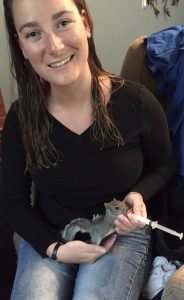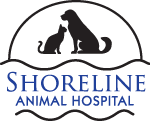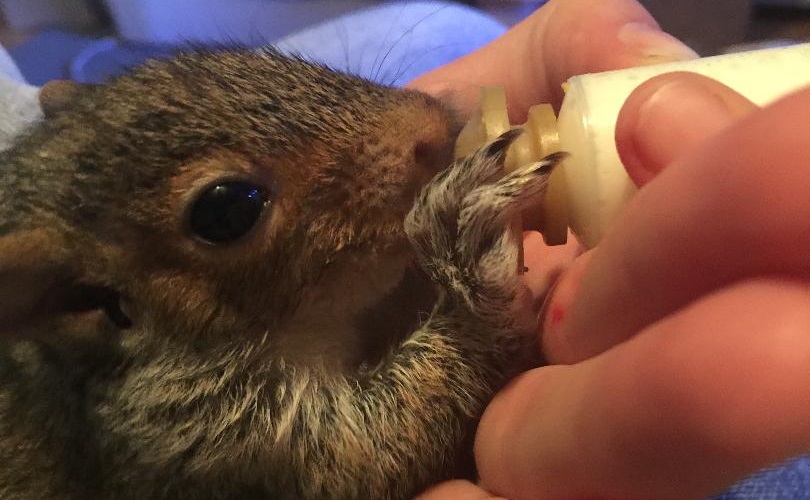Spring is here! And it’s that time of year when wildlife babies are making their way into the world. Although we want to do our best to help them, in many cases human intervention can do more harm than good.

Our staff member Julie Guckin, who is a state licensed Wildlife Rehabilitator and Certified Veterinary Technician, has some tips on what to do about injured or possibly orphaned wildlife.
- Baby animals always do best when they are raised by their own mothers, and mothers will always come back for their babies if they are able and given the chance. Neither birds nor mammals will abandon their babies due to the scent of a human, but they will stay away if you are near the nest or den. It is best to put babies back in their nest or in a safe place nearby and observe from a distance for the parent to come back. This way you can avoid kidnapping a baby animal that is not truly orphaned.
- A baby animal may need our help if: it is obviously bleeding or injured; it is caught by a cat or a dog; if it is weak, shivering or gasping; has fly eggs on its fur or feathers; if there is a dead parent nearby; or if it is acting distressed or wandering for long periods of time.
- Rabbits and deer both leave their babies hidden for lengthy periods, only visiting a few times a day to feed them to avoid attracting predators. Their instinct is to remain very still when approached, which may appear to us as a sign of illness or distress. If you find a fawn or a nest of bunnies, leave them alone and stay away so the mother is not afraid to come back.
- Baby bird hatchlings and nestlings are immature and not fully feathered. If possible, they should be put back in their nest, but if the nest is not accessible you can use a small box or berry basket and secure it as high as possible in a tree near the original nest. If this is not possible, they need to go to a rehabilitator as soon as possible.
- Fledglings are older baby birds that are fully feathered but may not yet be able to fly. When they first leave the nest, they may spend a few days on the ground being fed by their parents. This is a particularly vulnerable time for these little guys so keep your cats and dogs away from them. The parents are probably nearby keeping an eye on them.
- Never feed a found baby animal. It can do way more harm than good to feed a baby the wrong diet. Either put it back and wait for its parent to come feed it, or contact a wild life rehabilitator who is trained to identify species and create a proper diet for it.
- Stress can be deadly! If you have a baby that is going to a rehabber, keep it in a warm, dark, very quiet place until it can be transferred. Avoid the temptation to pet, feed, take pictures, or handle the baby!
- Rabies is endemic in our area, and wildlife rehabilitators need to have a special permit to care for rabies vector species such as raccoons, skunks, foxes and bats. Other diseases and parasites harmful to humans can be carried by wildlife as well. For your own safety, avoid directly handling wild animals. If possible, scoop the animal into a box or container with a broom, or use a large towel or blanket to pick it up. If you must use your hands be sure to wear gloves and wash your hands. Any bare skin human contact with a rabies vector species can lead to state mandated rabies testing of the animal, which unfortunately involves euthanasia and testing of the animal’s brain tissue.
- It is illegal to raise wildlife without a state permit and illegal to keep them as pets. Wildlife rehabilitators are state licensed volunteers who give their time and resources to help wild animals with the goal of releasing them back to their native environment. They typically work other jobs and may not be able to answer phone calls immediately, so if you call on one please be patient and consider giving a donation toward the animal’s care!
Where to find help:
To find a licensed wildlife rehabilitator, or to learn how to become a rehabilitator, go to the CT DEEP website at www.ct.gov/deep and look under the heading of nuisance or distressed wildlife.
Animal Help Now ( https://ahnow.org ) is a nationwide database with listings of rehabilitators and resources for injured or nuisance wildlife in your area, and lots of helpful information about local species.
And you can always call your local Animal Control Officer or Veterinarian for help or advice.

